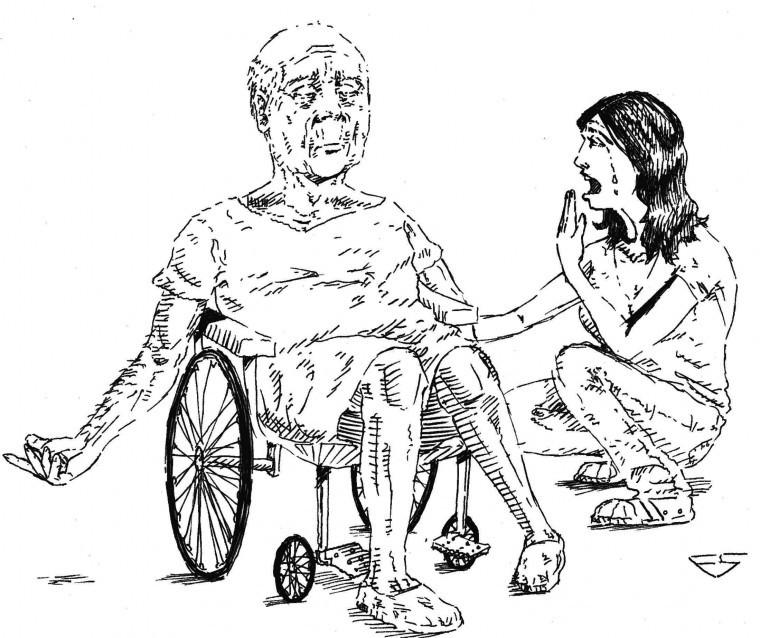Life is too important to consider physician-assisted suicide
February 16, 2011
No matter how futile treatment may prove to be, no matter how expensive it may be or how much stress a relative’s terminal illness may put on my family, they should fight until the end.
Ending your life by choice, for any reason, completely contradicts everything our genes are built to do: survive. I can understand why, for example, a grandparent in a nursing home would want to just end his or her life, but I do not support it whatsoever.
In fact, I remember when my grandpa would say this from time to time when he was in a nursing home not too long before he passed away. The love of his life had passed, my family struggled to balance proper attention and care for him between their busy jobs and kids, and his health was going nowhere but down.
Let me ask this, though: what would my grandma have wanted him to do? Every time I was over there, she was arguing with his stubborn self to take his pills and shots and basically stressed herself out to keep him alive.
My family stressed themselves out so much because of their desire to keep him feeling loved and comfortable. Finally, the thought that “I only have six months to live, why not just end it now?” is ridiculous because everyone ends up dying. Life itself is an eternal illness and your choice to eat, get flu shots, have sex, stay warm, cool down, get a job, and so on, is all in the name of life. So, I say take those six months as one more challenge, and see if you can beat the odds.
Enough of my individual speculation and motivational speech; let’s look at the laws that are in place and how it affects those with terminal illnesses. Currently, there are three states where assisted suicide is in place: Montana, Oregon and Washington.
Dr. Kenneth Stevens, a cancer radiation oncologist with a group against assisted suicide called Physicians for Compassionate Care, has been practicing in Oregon since 1967.
“If a cancer patient has a five percent chance of living for five years, [some Oregon health plans] will not pay for any curative treatment like chemotherapy,” Stevens said. “But they will pay for assisted suicide.”
This indirectly promotes assisted suicide over preventative care, even though both are an option. Stevens also said that assisted suicide is cheaper than curative care. Because of this, a terminally ill person who depends on their family for help with medical expenses might be swayed to choose assisted suicide even though both they and their family want them to live. With assisted-suicide options in place, it sort of coerces a person to feel like immediate death is a more reasonable and helpful option than persevering.
“Proponents say it’s well-regulated,” said Stevens. “It’s a joke; not complete and not accurate.”
Poor regulation of such a serious choice, death, is absurd. Stevens said everyone who chose the option and died in 2010 was supposed to have received a psychological evaluation, but only one out of 65 of them actually did.
The fact that people who are terminally ill are even given the option seems to put more stress and negativity in their already demanding lives. Dr. Stevens calls the group Compassion and Choices, which pushed for this legislation, predatory.
“They basically say doctors can kill people better than they can take care of them,” Stevens said.
Compassion and Choices likes to call assisted-suicide an “end-of-life choice.” Much like the act itself, known as Death with Dignity, it attempts to sugar-coat exactly what this option is. Suicide is, by definition, “the act of deliberately killing yourself.” It is odd to think that some health care professionals see death as a good option since it is pretty contradictory to what their job is intended on doing.
Although people want control and may see hope as dim, every second of a person’s life has a purpose.



